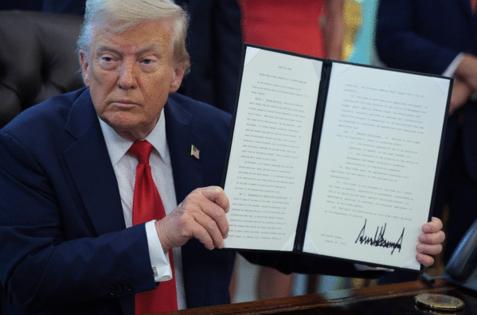John M. Crisp: Resisting creeping authoritarianism will require confidence and courage
Published in Op Eds
At about the time President Donald Trump issued his Aug. 25 Executive Order entitled “Prosecuting Burning of the American Flag,” I happened to be reading “A Gentleman in Moscow,” Amor Towles’ droll novel about life under the Bolsheviks in the 1920s through the 1950s.
A secondary character, Mishka, is a passionate, idealistic writer who struggles to survive under the repressive new regime. In 1934, he was engaged to edit the collected letters of renowned Russian writer Anton Chekhov. He labors over the project for four years, and by 1938 the manuscript is almost complete.
But there’s one little problem: His senior editor, Shalamov, summons Mishka to his office, where he finds the galleys of his document resting on Shalamov’s desk. A work of “nuance and erudition,” Shalamov calls it. “A paragon of scholarship.”
However, “one small matter” needs attention: In June 1904, Chekhov wrote a letter from Germany to his sister Maria praising the dinners, the coffee and, especially, the bread in Berlin. He writes, “People who have never been abroad don’t know how good bread can be.”
This passage, Shalamov insists, must be “stricken.” The Bolsheviks cannot tolerate criticism of the regime, even in matters as trivial as whether the bread is better in Berlin than in Moscow.
Spoiler alert: At first Mishka agrees, then he responds to his conscience and refuses. Mishka is sent to Siberia for eight years.
Comparisons between Trump and Hitler—or in the present case, Stalin—are often overwrought and not particularly persuasive. On the other hand, Hitler—a fairly ordinary youth—did not become “Hitler” overnight, and Germany became Nazi Germany only a little at a time. Thus, our failure to note signs of Trump’s creeping authoritarianism is dangerous.
All authoritarian regimes share one distinctive characteristic, reflecting two sides of the same coin:
First, authoritarians always tell their subjects that their country is far superior to all others, and, on the other side of the coin, they will not accept criticism of any kind, even in matters as inconsequential as who has the best bread.
Trump, of course, never met a superlative he didn’t love, even when—or especially when—he’s talking about himself: “I have the best words.” “I was always the best at what I did.”
But he lavishes praise on our nation, as well: The U.S. is the “Greatest Country in the world.” “We’re the HOTTEST Country Anywhere.” We make “the best planes and rockets.” We have “the best economy.” We have “the best unemployment numbers.”
“We have the best of everything.” Even bread, I guess.
There’s nothing wrong with pride in your country, though overdoing it seems tacky. It sounds too much like bragging. It would be better if others said such things about us so we don’t have to say them ourselves.
But the other side of the authoritarian coin is a refusal to concede anything negative about a country, whether its bread is inferior, for example, or the fact that slavery is an inescapable element of its history.
Trump, of course, is trying to bring the Smithsonian to heel for making such a big deal over slavery, while he renames army installations to preserve the names of Confederates who fought to preserve it.
All of this drips with authoritarianism: May we have the national courage and confidence not to fall for the excessive praise, and may we be willing to acknowledge our imperfections.
Back to where we began: Flag burning. The U.S. is practically unique in recognizing the constitutional right of its citizens to protest by burning a flag. In Germany, a flag-burner can go to prison for three years.
But in America we have enough confidence in ourselves that we let citizens protest as they wish. Trump wants to change that; it’s what authoritarians do.
Personally, I’d never burn a flag. But really, the only act that is more uniquely American than taking a match to Old Glory is having the courage and confidence in ourselves to tolerate fellow Americans who choose to exercise their right to free speech in this way. It suits Trump to undermine that confidence.
_____
ABOUT THE WRITER
_____
©2025 Tribune Content Agency, LLC
























































Comments